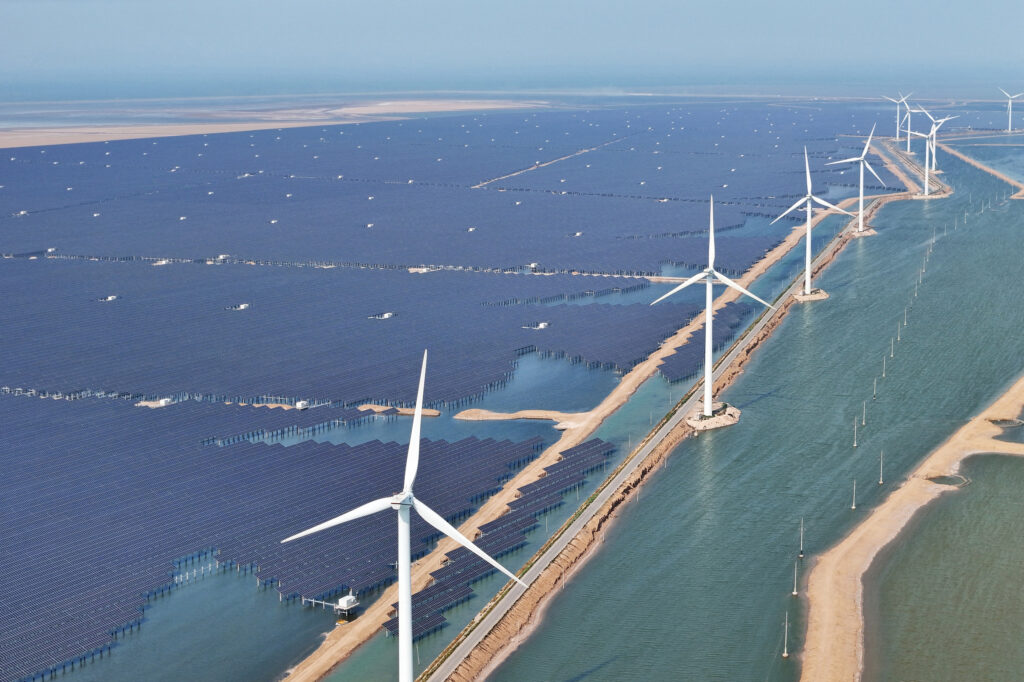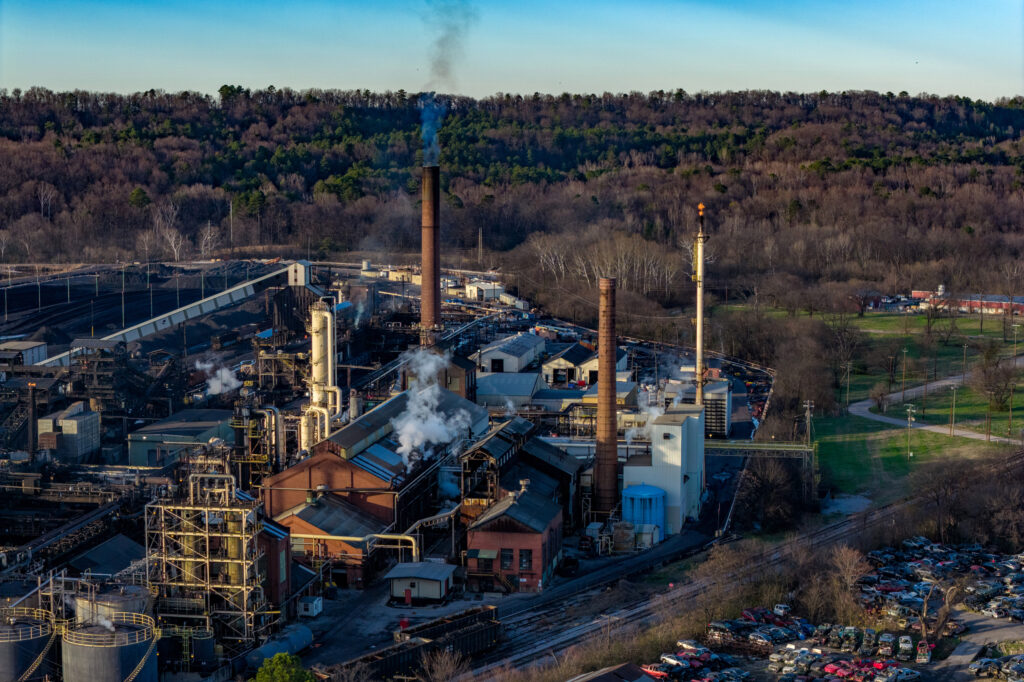A report released this month by Resources for the Future found that the complexity of federal grant applications for energy transition projects hinders Wyoming coal communities’ ability to access funds that could prove critical to the transformation of local energy economies.
While the report by the Washington, D.C.-based nonpartisan, nonprofit research firm also found that local stakeholders and federal officials have been able to form productive working relationships despite political differences and varying degrees of commitment to clean energy, it found a variety of factors suppressing the state’s coal communities’ appetites for federal funding to transform their economies.
Wyoming’s coal industry has endured a turbulent decade with tax-revenue from the industry plummeting to record lows. This year has been even more difficult: In May, the Bureau of Land Management ended federal leasing for coal mining in the Powder River Basin, a geological formation spanning northeast Wyoming and southeast Montana.
On Dec. 12, Gov. Mark Gordon announced in a press release that Wyoming and Montana were suing the BLM over that decision, which he called “narrow-minded” for its focus on reducing the burning of coal for electricity to cut the planet-warming greenhouse gases without appropriately considering the “economic impacts” of that change.
The transition from fossil fuels to cleaner sources of energy is deeply unsettled in Wyoming. And the state’s coal communities’ fraught relationship with federal support for the energy transition could be further strained by political whiplash during the incoming Trump administration, which could impact federal assistance for navigating the changing energy market.
Ian Hitchcock, a consultant for Novi Strategies, a clean energy and climate consulting company, and the report’s primary author, grew up in Dubois, Wyoming, a rural town halfway between Jackson and Lander, and has been interested in the state’s energy communities for years.
Wyoming’s extractive industries, which includes coal, oil and gas, offer Wyomingites “access to a kind of income—albeit in a bit of a boom and bust cycle—that they might struggle to come up with in the absence of that industry,” Hitchcock said.
That dynamic partially explains the state’s cultural and economic affinity for fossil fuels, he continued. But it also highlights the complexity of the state’s energy economy, as Wyoming’s booming gas industry has been primarily responsible for coal’s declining market.
Now that the world is broadly shifting to clean energy, he wanted to study “those communities whose economies have been dependent on fossil fuels and, in the absence of a lot of intentional support, are going to be devastated by the implications of that transition.”
After interviewing residents of the Powder River Basin, the epicenter of Wyoming coal production, and state and federal energy officials, Hitchcock found that access to federal grants was oftentimes hamstrung by a complex, time consuming and financially demanding application process.
In Wyoming, which has the fewest residents of any state, “the county clerk or … the town treasurer might also be doing three other jobs,” Hitchcock said. That strains a municipality’s resources when it comes to filling out applications that can require dozens, sometimes hundreds of pages of paperwork and data.
Such convoluted applications, “privilege the powerful,” Hitchcock said, because those with more money and staff will have an easier time applying.
Even the most powerful state officials in Wyoming have cited burdensome application processes as a reason to forgo federal assistance. Last November, Gordon decided not to pursue federal funding to reduce greenhouse gases, both to preserve Wyoming’s “‘all-of-the-above’ energy development,” and because spending millions developing an application did not make “fiscal sense” for the state.
Wyoming’s Grant Assistance Program helps local governments, businesses and nonprofits pursue funding opportunities available to their communities, and the state’s Energy Matching Funds have, in many cases, provided money to projects receiving or pursuing federal grants.
Many of those interviewed for the report also expressed dismay that, although Wyoming produces 41 percent of the nation’s coal, federal money has so far gone primarily to coal communities experiencing more significant job losses. Wyoming, with such a small population and a still-viable coal industry, would not necessarily register as struggling under that criteria.
“There was a sense—and not entirely inaccurately, I think—that many of the federal programs that were designed to support coal communities specifically were largely created with an Appalachian context in mind,” Hitchcock said.
Local stakeholders offered a few suggestions in the report for how to fix these issues. First, they wanted to streamline the federal grant application process by standardizing application criteria across different departments or allowing federal agencies to store information like names and addresses for future applications. They also suggested that current coal production should be taken into account so that federal policy more proactively responds to communities before they experience drastic job losses.
This story is funded by readers like you.
Our nonprofit newsroom provides award-winning climate coverage free of charge and advertising. We rely on donations from readers like you to keep going. Please donate now to support our work.
Donate Now
“One of the things that would help is if there was more of a regional aspect” to grants, said Rusty Bell, the director of Gillette College’s Office of Economic Transformation. He would like to see money allocated by region first, so communities in every coal basin are guaranteed to see some funding, he said. From there, competition for grants would be more local. “We’re all in the same boat,” he said.
There were bright spots in Hitchock’s research, too. “I found myself very pleasantly surprised and impressed by the perhaps overdue but necessary acknowledgment by local officials in Wyoming that, whether they liked it or not or agreed with it or not, the energy markets were in a period of transition, and they would need to engage in some economic energy transformation of their own to keep.”
That recognition helped the Interagency Working Group on Coal and Power Plant Communities and Economic Revitalization, a federal initiative composed of officials from a dozen other federal agencies, form “Rapid Response” teams in counties across the country, including three in Wyoming. These teams assist places dealing with a diminishing fossil fuel economy by helping them access federal resources to maintain or revitalize their community’s quality of life. In 2022, Wyoming became the first state to test a Rapid Response, Hitchcock said.
In his report, Hitchcock called this type of government-to-citizenry engagement “promising.”
As part of the Bipartisan Infrastructure Law and the Inflation Reduction Act, the Interagency Working Group on Coal and Power Plant Communities and Economic Revitalization has made over half a trillion dollars available to fossil fuel energy communities.
“There may be fewer resources to play with but I suspect the work will continue.”
— Ian Hitchcock, Novi Strategies consultant
A place like Campbell County, where Bell works, wouldn’t be eligible to apply for every program that gives out that money, he said, but “just the fact that there are some opportunities out there, it is a good thing.”
Like other parts of President Biden’s energy policy, federal funding for energy transformation in coal communities may prove difficult for President-elect Donald Trump to undo. Hitchcock wouldn’t rule out Trump and congressional Republicans attempting to claw back federal funding for coal communities, but said that could prove politically difficult with much of that money benefiting staunchly Republican communities.
“There may be fewer resources to play with but I suspect the work will continue,” with or without federal funding, he said.
Hitchcock suggested that philanthropic organizations could create connections and opportunities for Wyoming’s coal communities if federal money were to dry up. But given the impact the federal funding is having in communities dependent on fossil fuel industries, any loss or lapse in government investment could still disrupt the pace and magnitude of Wyoming’s energy transformation, he said.
About This Story
Perhaps you noticed: This story, like all the news we publish, is free to read. That’s because Inside Climate News is a 501c3 nonprofit organization. We do not charge a subscription fee, lock our news behind a paywall, or clutter our website with ads. We make our news on climate and the environment freely available to you and anyone who wants it.
That’s not all. We also share our news for free with scores of other media organizations around the country. Many of them can’t afford to do environmental journalism of their own. We’ve built bureaus from coast to coast to report local stories, collaborate with local newsrooms and co-publish articles so that this vital work is shared as widely as possible.
Two of us launched ICN in 2007. Six years later we earned a Pulitzer Prize for National Reporting, and now we run the oldest and largest dedicated climate newsroom in the nation. We tell the story in all its complexity. We hold polluters accountable. We expose environmental injustice. We debunk misinformation. We scrutinize solutions and inspire action.
Donations from readers like you fund every aspect of what we do. If you don’t already, will you support our ongoing work, our reporting on the biggest crisis facing our planet, and help us reach even more readers in more places?
Please take a moment to make a tax-deductible donation. Every one of them makes a difference.
Thank you,

















